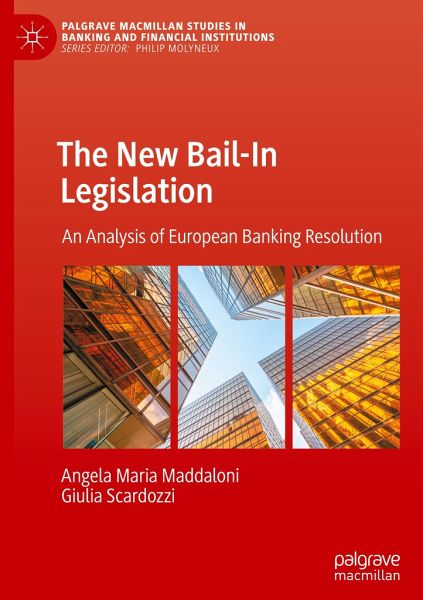
The New Bail-In Legislation
An Analysis of European Banking Resolution
Versandkostenfrei!
Versandfertig in 6-10 Tagen
49,99 €
inkl. MwSt.
Weitere Ausgaben:

PAYBACK Punkte
25 °P sammeln!
Financial stability is a pillar of well-functioning financial markets. After the last financial crisis, European policymakers harmonised banking regulation and revised the framework of banking resolution. The introduction of the bail-in legislation is a natural experiment to improve the understanding of banking resolution and how it affected the funding strategies of banks. This book assesses whether financial stability has been strengthened by the change in banks' resolution policy with a focus on the bail-in. The book shows how banks changed their funding strategies, shrank their balance-she...
Financial stability is a pillar of well-functioning financial markets. After the last financial crisis, European policymakers harmonised banking regulation and revised the framework of banking resolution. The introduction of the bail-in legislation is a natural experiment to improve the understanding of banking resolution and how it affected the funding strategies of banks. This book assesses whether financial stability has been strengthened by the change in banks' resolution policy with a focus on the bail-in. The book shows how banks changed their funding strategies, shrank their balance-sheets and relied more on deposits. The book will discuss inter-alia the mis-selling of bonds, which happened during 2012-2013, analysing whether the bond allocation changed after the bail-in launch. It discusses how the bail-in mechanism was deemed credible by equity holders and argues that the European case would have useful implications for third countries. Finally, the book relates this discussion to the possible collateral effects generated by the new resolution policy during and after the COVID-19 crisis, which will be of particular interest to researchers and policymakers in banking and financial institutions.












